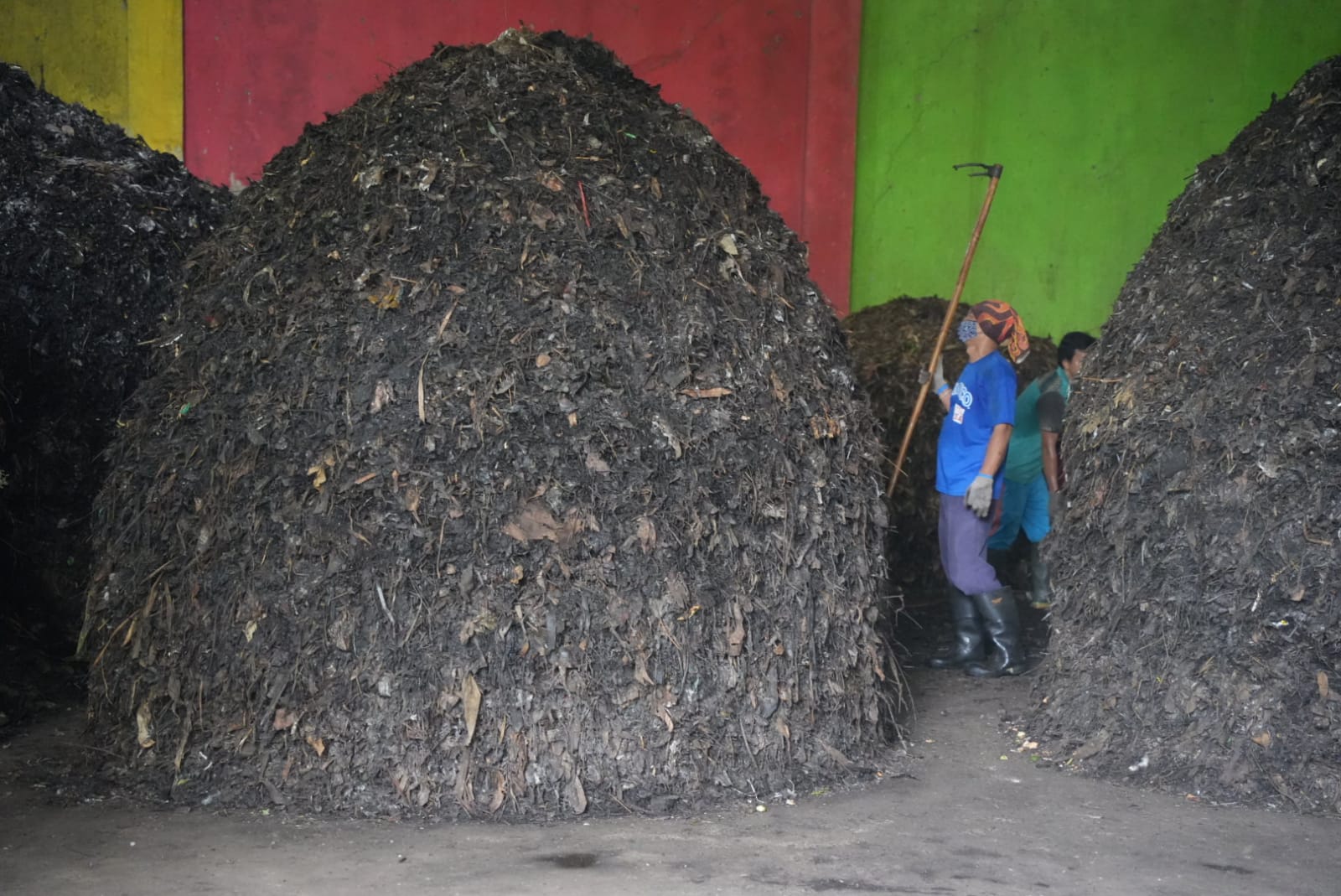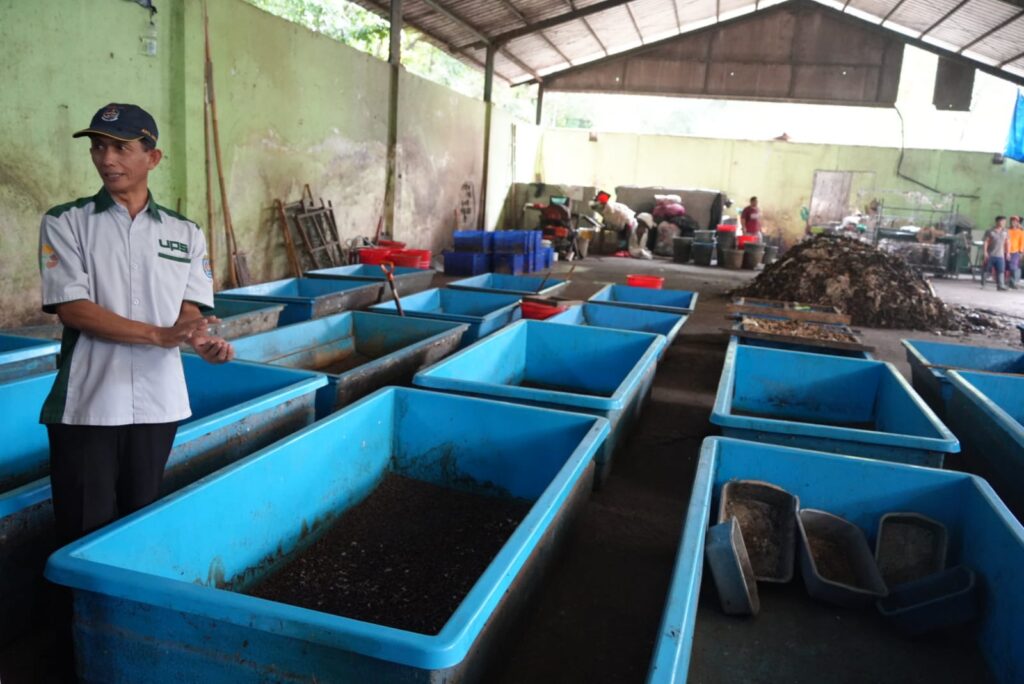
Tour of an organic waste recycling facility in Jakarta
On November 17th, a collaborative team, including members from Euglena Co. Ltd. and researchers Dr. Nur Akmalia Hidayati and Dr. Sri Wahyono from BRIN, visited UPS Merdeka to explore innovative waste management solutions. This visit was not only a field assessment but also a step towards understanding the practical possibilities of integrating advanced methods into current practices. The focus was on comprehensively evaluating and enhancing the effectiveness of waste management techniques at UPS Merdeka, with an emphasis on sustainability and technological integration.
1. UPS Merdeka's Composting Efforts: A Step Towards Sustainability
At UPS Merdeka, composting has become a vital tool in waste reduction. The facility processes 1.5 tons of waste daily, converting it into valuable compost through aerobic fermentation. This transformation results in a 50% weight reduction and 20% volume reduction, providing the local community with high-quality compost. The integration of Euglena, a microalgae, into this process is being researched for enhancing compost quality and reducing processing time.
Global Perspective: The Rise of Advanced Waste Management Techniques
Globally, waste management is witnessing a surge in technological innovations. According to StartUs Insights, the industry is leveraging artificial intelligence for optimizing waste collection routes, robotic waste sorting for efficiency, and the Internet of Things for real-time monitoring of waste bins. These technologies align well with the objectives of UPS Merdeka, signifying a global shift towards more efficient and sustainable waste management practices.
2. Maggot Farming: A Circular Economy Approach
Maggot farming, using Black Soldier Fly larvae, at UPS Merdeka is another exemplary model. The facility converts 2 tons of food waste into nutrient-rich feed for fish and poultry, demonstrating a perfect circular economy model. Maggots are harvested and sold as animal feed, while the waste produced during this process, known as Kasgot, is utilized as organic fertilizer.

Trends in Maggot Farming
Maggot farming is gaining traction as a sustainable solution to waste management. MCP, a company using the BIKOMAG methodology, processes tens of thousands of tons of organic waste, with 10 grams of Maggot BSF seeds capable of processing 62.5 kg of organic waste per lifecycle. This method not only addresses waste management but also supports the local economy by involving plasma farmers in the production process. [Ref]
Conclusion
The practices at UPS Merdeka, combined with global trends in waste management, showcase the potential for innovative, sustainable solutions in handling urban waste. By embracing these methods, cities can transform their waste into valuable resources, contributing to a healthier environment and a more sustainable future.
